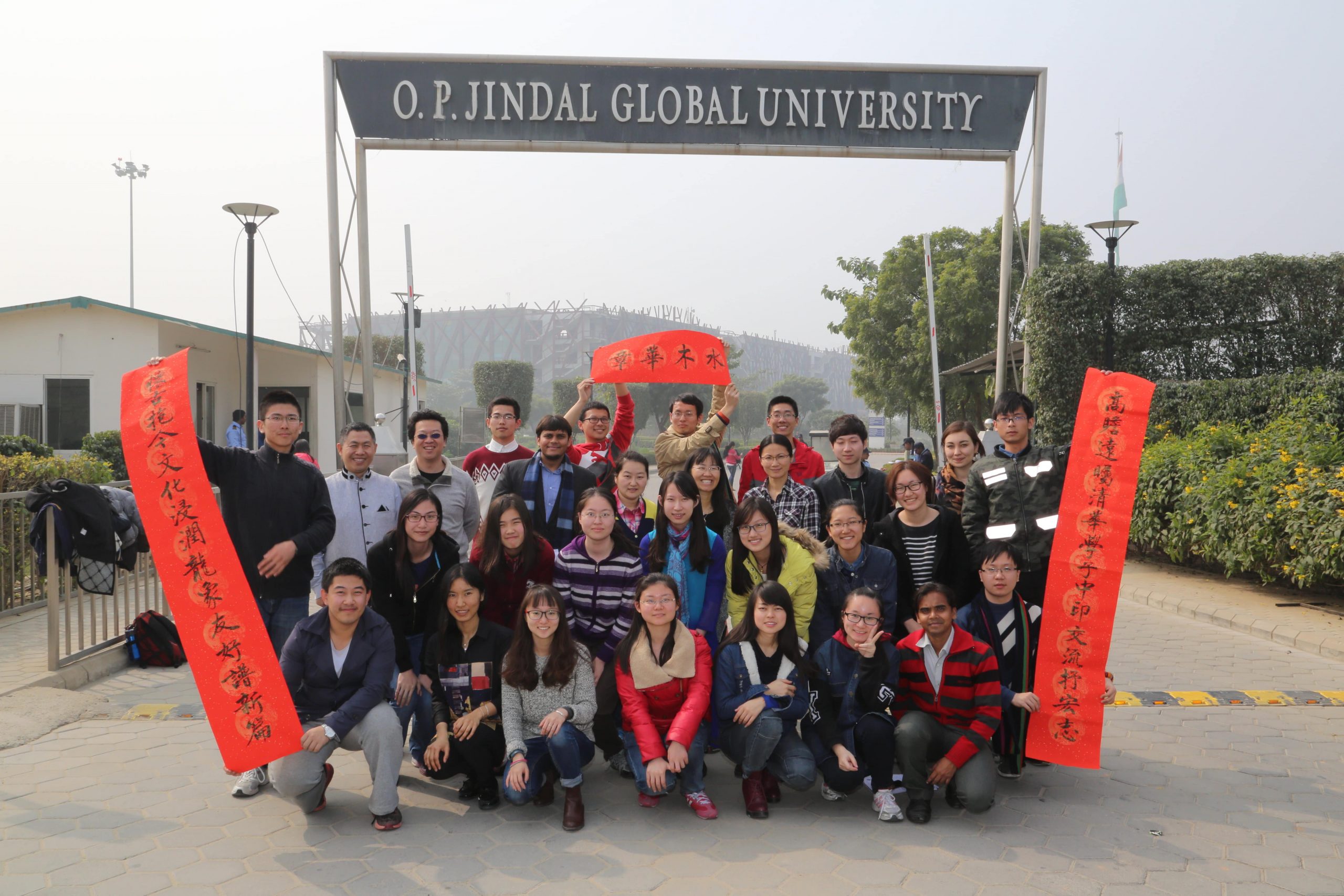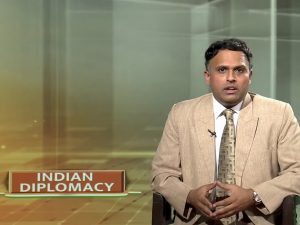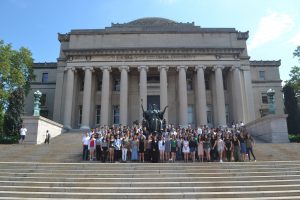Politics is a powerful force—it can bring people together or tear nations apart. The whole world is witness to major political upheaval today. Increasing rivalry between superpowers US and China, the fragmentation of older durable alliances including Europe reeling from the aftermath of Brexit, significant shifts in geopolitical alliances across the global north and south, new economic arrangements, political violence and polarisation, the resurgence of the state, and new forms of crisis are rapidly changing politics as we know it. Recent developments in India too have grabbed headlines globally.
A time like this calls for a fresh perspective.
The B.A. (Hons.) Political Science programme at Jindal School of International Affairs is a total revamp of an age-old degree. The game-changing programme offers every opportunity to ‘enhance Indian and international capacities of analysing and solving world problems’—a way to reimagine the future of politics that brings together theories with an understanding of practice and lived experience and an emphasis on developing practical skills to deal with new political challenges.
Through the three-year undergraduate course, students will embark on an illuminating journey on how politics is changing in both theory and practice, at both micro and macro scales. The study of domestic, regional and international contexts, analysis of theory and practice of political activities, frameworks, and phenomena form the foundation of the critical and contemporary study of politics.
JSIA, O.P. Jindal Global University is a platform for young people interested in politics like never seen before in India. As the global political context changes rapidly, students stand to gain the most from an up-to-date education, global perspective, highly trained and specialised faculty from the world over, cutting-edge research, practical exposure, international linkages and global opportunities offered here.
Here are 5 factors that make the B.A. (Hons.) Political Science degree from O.P. Jindal Global University a promising choice for young people today:
- You’ll learn about new and emerging areas in politics unlike anywhere else
“India has had B.A. (Hons.) Political Science for decades, but they’ve not covered emerging fields and topics within this vast discipline which is the study of politics,” says Prof. Sreeram Sundar Chaulia, Dean, JSIA.
The major USP of this programme is that it bridges the gaps in political science education in India. It will focus on new areas of study and include immersive and experiential learning from diverse contexts and faculty.
“These include things like political leadership, news media and politics, political marketing, political communication, election campaigning, the role of protest movements in bringing about political change, the link between economics and politics or history and politics, or the link between political actors and international phenomena such as globalisation and foreign policy and diplomacy,” adds Prof. Chaulia.
2. The curriculum links local and global politics and exposes students to unfamiliar regions and theories
In a world that’s more interconnected than ever before, politics as a phenomena crosses boundaries. Rather than a micro approach to regional politics, the emphasis is on a holistic understanding of politics across the globe. “Students are going to learn about similarities and differences between political developments in India vis-a-vis Brazil, China, Russia or the United States,” says Prof. Chaulia.
In the backdrop of a domestic higher education landscape that has not been able to foster strong research or explore a wide array of global linkages, JGU’s B.A. Political Science programme presents a truly contemporary advantage.
“For example, the phenomenon of right-wing populism. It’s emerged as a major force in the last few years. There’s not sufficient understanding of it both within our country and across the world. Our students are going to be exposed to these themes,” adds Prof. Chaulia.
What are the markers of such political phenomena; how have they developed in different parts of the world; how are they interconnected; and how can we predict and prepare for the future of politics? JSIA will help students answer these questions, drawing from and contributing to a growing body of research in academia and beyond.
3. You get the chance to study at top universities across the globe
JSIA has built strong partnerships with leading international academic institutions that feature in world university rankings, offering students an unprecedented range of opportunities to study abroad. Faculty and Deans work closely with students to help them plan, apply, and prepare for their study abroad experiences.
You can opt for summer schools at Oxford, the Fletcher School of Diplomacy at Tufts University, the University of Granada, and many more. There are a number of study abroad programmes at prestigious international institutions to choose from. You can go one step further and earn a second Bachelor’s degree in Global and International Studies from the Geneva School of Diplomacy, Switzerland.
4. You’ll examine politics through a multidisciplinary perspective
Political studies is the kind of discipline that is innately related to other subjects. It’s impossible to imagine politics without the influence of social sciences like economics, history, sociology, or even psychology. How human beings think and behave is as much a key to the course of politics as is the economy. A variety of courses like ‘Ethics, Public Administration & Policy’ or ‘Gender, Identity & Politics’ illustrate the multidisciplinary dimensions of political science.
Instead of a compartmentalised approach, the integration of political science with other disciplines enables students to really interpret the holistic context behind political developments.
5. You’ll get more real world, practical exposure
Hard sciences have always included practical aspects of learning, while social sciences often lag behind. Take the classic case of dissecting a frog in medical school, and eventually simulating more complex procedures. When the purpose of education is to learn from, reflect on and effect change in the ‘real world’, the need for exposure to the practical dimensions of any area of study is but obvious. It should be no different in social sciences. The Political Science programme at Jindal School of International Affairs is remedying this gap.
The ability to solve problems of the future rests strongly upon a student’s practical exposure. Students of the B.A. Pol. Science programme will gain practical knowledge of politics and allied fields through:
- Interactions with experts in the field and scholars from around the world through seminars, workshops and lectures, guest teaching, and institutional collaborations.
- Internships with government bodies, NGOs, research organisations, etc.
- Field trips to facilitate experiential learning.
- Research opportunities through initiatives in 11 research centres. Research at the undergraduate level is encouraged so students can broaden their knowledge base, and prepare for more research-intensive higher education and research-oriented careers.
- Scenario building exercises, research papers and interactive learning sessions that will develop analytical thinking and critical reasoning.
Stepping stone to futures in established and new career avenues in politics
If you’re passionate about politics, then you already know it could benefit from an infusion of young blood, especially in India. Ours is a young country. Young people who are educated, capable and aware have to rise to the challenges of governance.
A degree in political science from the country’s first and arguably best global policy school at one of the best universities in India, with a strong practical orientation, will help you understand how politics is changing and how you can help steer the course for the next generation. The programme prepares you for political research, government, media, diplomacy, and political leadership, academics, practical research and analysis in national and global organisations, and careers in new and exciting fields in policy, psephology, and consultancy in both the public and private sectors.
There’s a lot more you can do with a B.A. (Hons.) Political Science degree. It’s truly versatile. By learning how to ‘read, think and write on national politics and global issues’, honing analytical, communication and research skills, students will be qualified for a range of careers. These include positions in civil service, bureaucracy or diplomacy, political consultancies and even political parties, Embassies and High Commissions, NGOs, inter-governmental organisations, PR firms, activism and advocacy groups, think tanks, news media and more.




